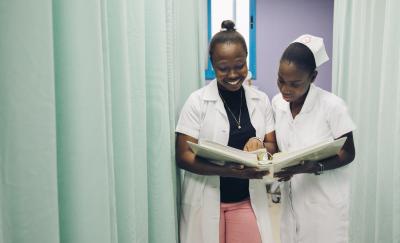This report describes the implementation and early impacts of the Washington State Integrated Basic Education and Skills Training (I-BEST) program at three colleges: Bellingham Technical College, Everett Community College, and Whatcom Community College. I-BEST is a nationally known program that aims to increase access to and completion of college-level occupational training in a variety of in-demand occupational areas. Its signature feature is team teaching by a basic skills instructor and an occupational instructor during at least 50 percent of occupational training class time. Colleges operated I-BEST programs in one or more occupational areas including automotive, electrical, office skills, nursing, precision machining, and welding. I-BEST is one of nine career pathways programs being evaluated under the Pathways for Advancing Careers and Education (PACE) study sponsored by the Administration for Children and Families.
Using a rigorous research design, the study found that the I-BEST programs at the three colleges increased participation in college level courses, number of credits earned and credential attainment. Future reports will examine whether the I‑BEST program resulted in gains in employment and earnings.
- The three colleges implemented I-BEST as designed. The colleges varied in how they delivered I-BEST across the different occupational programs. The combination of the instructional approach (team teaching), advising, and financial supports resulted in a clear contrast between the services available to treatment group members and those available to control group members.
- The program provided access to college-level courses for individuals with low basic skills and education levels. Almost one-third of treatment group members reported having less than a high school diploma or equivalent. Overall, 73 percent of treatment group members offered the I-BEST program participated in it.
- The program had positive impacts on college course enrollment, driven primarily by enrollment in occupational training courses. I-BEST increased college enrollment by 22 percentage points, and increased enrollment in occupational training courses by 41 percentage points.
I-BEST increased credits earned and credential attainment. Treatment group members received an average of 13 more credits compared to control group members, and there was a 32-percentage point increase in credential receipt.
I-BEST Implementation and Early Impact:



